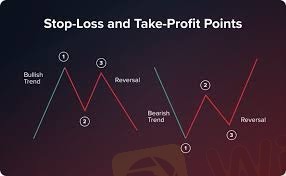
2024-12-24 00:46
อุตสาหกรรมStop-loss vs reduced exposure: Managing Christmas
#reducingvsclosingpositionsaroundchrismasmichriches#
*Stop-Loss Strategy*
1. *Set a stop-loss level*: Determine a price level at which to automatically close a position if it moves against you.
2. *Limit potential losses*: Stop-loss orders can limit potential losses if the market moves against your position.
3. *Risk management*: Stop-loss orders can help manage risk by automatically closing positions that reach a certain loss threshold.
4. *Potential drawbacks*: Stop-loss orders can be triggered by market volatility, resulting in unnecessary closures.
*Reduced Exposure Strategy*
1. *Reduce position sizes*: Decrease the size of your positions to minimize potential losses.
2. *Diversify portfolios*: Spread investments across various asset classes to reduce reliance on individual assets.
3. *Lower risk*: Reducing exposure can lower potential losses if the market moves against your positions.
4. *Potential drawbacks*: Reducing exposure may also limit potential gains if the market moves in your favor.
*Key Differences*
1. *Risk management approach*: Stop-loss strategies focus on limiting losses through automatic closures, while reduced exposure strategies aim to minimize losses by reducing position sizes.
2. *Market volatility*: Stop-loss strategies can be triggered by market volatility, whereas reduced exposure strategies are less susceptible to market fluctuations.
3. *Potential gains*: Reduced exposure strategies may limit potential gains, whereas stop-loss strategies do not directly impact potential gains.
*Choosing the Right Strategy*
1. *Risk tolerance*: Consider your risk tolerance and adjust your strategy accordingly.
2. *Market analysis*: Evaluate market conditions and adjust your strategy based on potential market movements.
3. *Trading goals*: Align your strategy with your trading goals, whether prioritizing risk management or potential gains.
Ultimately, a combination of both stop-loss and reduced exposure strategies may be the most effective approach to managing Christmas trading risk.
ถูกใจ 0
FX1985175646
Trader
การพูดคุยยอดนิยม
ดัชนีทางเทคนิค
สอบถามค่ะ
ดัชนีทางเทคนิค
ผูกบัญชี
ดัชนีทางเทคนิค
vps พึ่งใช้มาได้ 7 วัน
ดัชนีทางเทคนิค
ประกาศรายชื่อผู้โชคดี แจกหนังสือ Forex
ดัชนีทางเทคนิค
vps 7 วันแล้วถูกตัด
ดัชนีทางเทคนิค
ขอคำแนะนำหน่อยครับ
การแบ่งแยกตลาด

แพลตฟอร์ม

งานแสดงสินค้า

ตัวแทนโบรกเกอร์

รับสมัครงาน

EA

อุตสาหกรรม

ราคาตลาด

ดัชนี
Stop-loss vs reduced exposure: Managing Christmas
 ประเทศไนจีเรีย | 2024-12-24 00:46
ประเทศไนจีเรีย | 2024-12-24 00:46#reducingvsclosingpositionsaroundchrismasmichriches#
*Stop-Loss Strategy*
1. *Set a stop-loss level*: Determine a price level at which to automatically close a position if it moves against you.
2. *Limit potential losses*: Stop-loss orders can limit potential losses if the market moves against your position.
3. *Risk management*: Stop-loss orders can help manage risk by automatically closing positions that reach a certain loss threshold.
4. *Potential drawbacks*: Stop-loss orders can be triggered by market volatility, resulting in unnecessary closures.
*Reduced Exposure Strategy*
1. *Reduce position sizes*: Decrease the size of your positions to minimize potential losses.
2. *Diversify portfolios*: Spread investments across various asset classes to reduce reliance on individual assets.
3. *Lower risk*: Reducing exposure can lower potential losses if the market moves against your positions.
4. *Potential drawbacks*: Reducing exposure may also limit potential gains if the market moves in your favor.
*Key Differences*
1. *Risk management approach*: Stop-loss strategies focus on limiting losses through automatic closures, while reduced exposure strategies aim to minimize losses by reducing position sizes.
2. *Market volatility*: Stop-loss strategies can be triggered by market volatility, whereas reduced exposure strategies are less susceptible to market fluctuations.
3. *Potential gains*: Reduced exposure strategies may limit potential gains, whereas stop-loss strategies do not directly impact potential gains.
*Choosing the Right Strategy*
1. *Risk tolerance*: Consider your risk tolerance and adjust your strategy accordingly.
2. *Market analysis*: Evaluate market conditions and adjust your strategy based on potential market movements.
3. *Trading goals*: Align your strategy with your trading goals, whether prioritizing risk management or potential gains.
Ultimately, a combination of both stop-loss and reduced exposure strategies may be the most effective approach to managing Christmas trading risk.
ถูกใจ 0
ฉันต้องการที่จะแสดงความคิดเห็น
ถามคำถาม
0ความคิดเห็น

ยังไม่มีใครแสดงความคิดเห็น รีบแสดงความคิดเห็นก่อนเพื่อน

ถามคำถาม
ยังไม่มีใครแสดงความคิดเห็น รีบแสดงความคิดเห็นก่อนเพื่อน